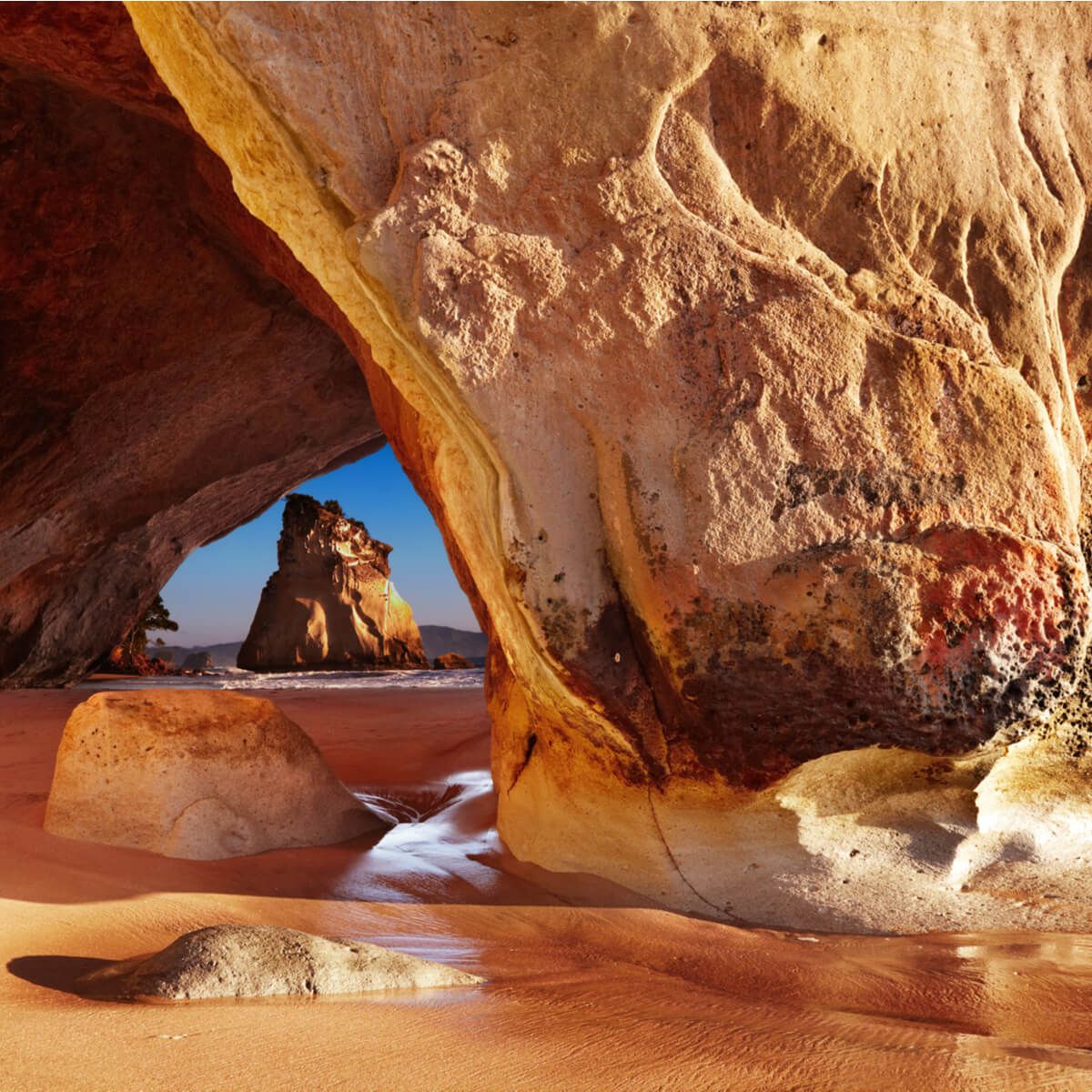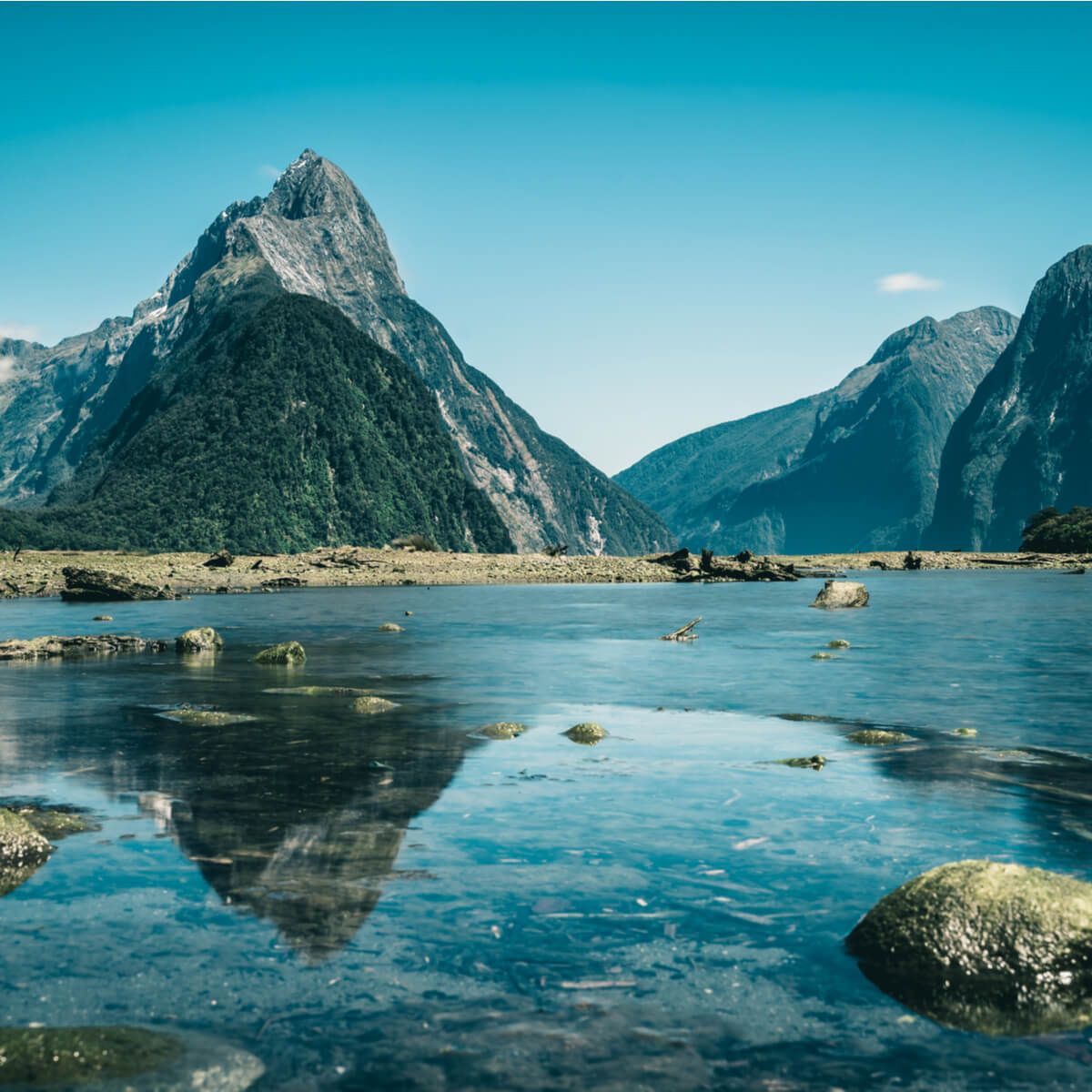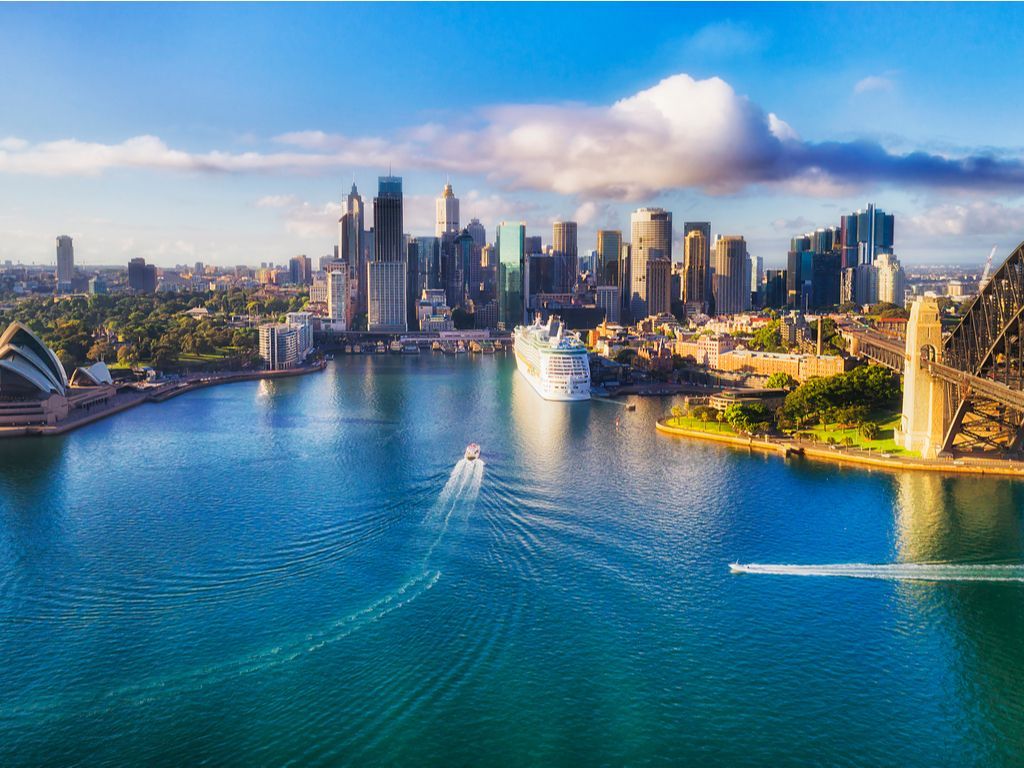Clinical Psychologist's Career in New Zealand Rescued by Recruiter
A clinical psychologist's first job in New Zealand turned out badly after he answered an advert and hurriedly accepted an employer's offer. Faced with a dilemma in Auckland, he turned to Odyssey for help. Our recruiter swiftly found a job with a leading employer in a favourite expatriate location and he has never looked back.
Background
Dr MN, an experienced clinical psychologist from the UK had completed an undergraduate degree in psychology and a Masters in applied forensic psychology before achieving his doctorate. He acquired extensive experience in forensic psychology and other fields of clinical psychology in the UK when an opportunity to work in New Zealand attracted his attention. The climate, landscape, culture and professional opportunities all piqued his curiosity and without much further thought, he signed up with the employer directly and was off to New Zealand.
This position was based in New Zealand's dynamic commercial capital Auckland but after starting work, it was apparent that this job would not work out and Dr MN was left in a quandary. Should he persist in New Zealand or return defeated to the UK? At that point he contacted Odyssey and our recruiter had a long discussion with him, eliciting the causes of his current discontent and his prerequisites for a new position.
Besides the unsatisfactory nature of the job, Auckland was busy and expensive for a young family and Dr MN needed a new home as well as a new job. The recruiter responded quickly locating a job in a highly sought after location, very popular with international healthcare professionals, yet surrounded by magnificent coastline and natural beauty. Tauranga in the Bay of Plenty is just 90 minutes drive from Auckland, close enough to access the city attractions when needed but far enough to find tranquility, reasonable housing costs and freedom from long commutes.
The new job, based with a mental health team in a public sector hospital offered interesting and challenging work with opportunities for the development of further professional skills and career progression. After initial meetings, a formal interview was organised and Dr MN offered the job. Moving to Tauranga was a relief and was followed by job satisfaction and renewed energy, transforming an impending failure into a resounding success.
Q: What was it that initially attracted you to New Zealand?
Dr MN: There were a number of reasons. Firstly, there was the climate and the beautiful New Zealand landscape, it’s paradise! There were also dreams of a better life for our child and just more opportunities, professionally and otherwise. Something that was important to me was a chance to sample different cultures in a multi-cultural country. I have always been fascinated by the Māori culture and traditions, and I always wanted to visit New Zealand so when an opportunity came up, I thought, let’s just go for it, even if it’s just for two and a half years. I obtained a work resident visa and things have moved on since then. Covid hit and we thought, let’s just stay, let’s go for residency. The work opportunities here are amazing compared to the UK.
Q: How did you find the recruitment process and the move over to New Zealand?
Dr MN: The recruitment was relatively straightforward and there was lots of guidance given. My job interview was great; it was a late night [due to the time difference] and it instantly felt like a really good fit. What I really liked about it was that we started with a karakia, which is a kind of opening statement in Māori culture that brings everybody together in the meeting room and sets all the differences aside – it was just lovely!
The visa process … there were a lot of hoops to jump through. I quickly realised though that I was on the essential skills shortage list for New Zealand and the requirement was 160 points. Even at my age, I was sitting on 220 points and the initial visa came through within a few weeks in the end. Obviously, there were also academic transcripts, police certificates, et cetera, et cetera that I needed to get in place.
For the move itself, we shipped all our gear out in a container about three months before we were due to leave which was a good thing! So, we were only there for three weeks living off the floor, sleeping on airbeds – it’s all part of the adventure, I guess!
Q: What are the differences between working in the private sector and working on a district health board? What inspired you to make the move from one to the other?
Dr MN: A lot of my experience in the UK was based in the disability sector; working with children and adults with autism or intellectual disabilities, mental health difficulties, challenging behaviour, and that was one of the options with the private sector post. There were a number of DHB options, but the private company seemed a great fit and the organisation was part of Healthcare New Zealand which is a much bigger entity, so I felt the opportunities for career progression would be greater there.
Then I came across the post within the DHB. The salary was better, and I was ready for a bit of a change, for exploring different opportunities. And I knew that being a clinical psychologist in the oncology department of the local hospital here, those opportunities don’t come along very often, so I jumped at the chance.
The salary is definitely different. You’d think the salary would be higher in the private sector, but it wasn’t – it was like two steps higher in the DHB. And being part of a DHB and really making a difference in people’s lives is fantastic. I’ve now been in post for just over a year and I love it! The camaraderie and being part of that busy hospital, it’s great! With the DHB, there is very little difference to the NHS in the UK in terms of structure, politics, dynamics, all those things. So, anyone coming over will feel a bit like home.
Q: What is your day-to-day job like and what training/career progression opportunities do you have?
Dr MN: I’m on a point six FTE which works out as three days a week. My role in the oncology department is to support, provide that emotional, psychological support to patients who either have a high suspicion of diagnosis or a diagnosis, are receiving treatment, post-treatment, survivorship-type issues. I work with patients in a highly distressed state, which is understandable and natural, and I help them to adjust, help them into a new way of life. And being in that oncology post now led to other opportunities within the DHB; to set up and implement a stuff wellbeing project or staff emergency department and ICU which is a fantastic opportunity.
The training opportunities are absolutely fantastic! I actually have a budget of NZ£ 2,500 a year, so I completed some speciality training recently; some ACS training, some CRT training, and I have just been approved for some EMDR training next year which is great. It’s all being paid for and there is also in-house training within the DHB which involves a lot of training around cultural competency and understanding New Zealand’s history and heritage. It’s all very well set up.
There are so many opportunities over here for psychologists because we are in such short supply; they are crying out for psychologists. There is quite a big recruitment going on at the moment; in the hospital there are around 13 psychologists and the great thing about that is, there are some from Europe like myself, sometimes South Africa and that comes with a range of experience and skill and theoretical backgrounds. We talk weekly in a peer supervision group and there are so many more opportunities within the DHB to utilise these skills.
Recently, in November 2021, the End of Life Choice Act actually came into law. This means patients affected by certain conditions can choose to end their lives through assisted dying and there’s plenty of opportunities around that, supporting those patients, supporting the staff.
Q: What stands out as the biggest benefit to living in the Bay of Plenty area?
Dr MN: The scenery, definitely! We’re 15 minutes away from probably the most beautiful beaches you can ever imagine. There is no litter on there, no rubbish, there’s nothing just lovely waters and the most gorgeous beaches. You have the Mount there as well which is sort of a mini mountain just off the coast. It’s also a really good jumping-off spot; it’s 40 minutes from Hobbiton, so if you’re a Lord of the Rings fan it’s happy days. Auckland is two and a half hours away, further down south you have Maniapoto which is an area know as the King’s Country … It’s glorious, it’s just wonderful. You have the best of both worlds here.
There is more of a culture of work life balance over here and things are more geared up to accommodate that. There is more of an emphasis on life outside of work and that’s a really great and positive culture.
Q: How did you experience the Kiwi culture?
Dr MN: First, there was a bit of a culture shock. It’s definitely more laid-back, especially when you come from a culture of something needs done so you get down and get it done. A funny one is, you see kids walking around the towns and cities barefoot, no shoes; they go to school barefoot and we’re still trying to come to terms with that in a way. Apparently, Kiwi kids growing up, they have got more problems with their feet because they spent so many years walking barefooted!
The Māori influence is significant. We are a bicultural society and it’s a huge part of life. The kids are taught Te Reo Māori [the Māori language] at schools, it’s now part of the curriculum to learn about the history of New Zealand, particularly about the Treaty of Waitangi, which was between the British colonialists and the Māori chiefs and now, almost 200 years later, that is still causing so much strife between Māori and the successive New Zealand governments. And working with Māori patients, you still see this historic trauma being experienced now.
I wanted to embrace Māori culture because the Māori way of viewing life is that we are all connected and part of our land, our mountain, our river, our ocean, and we’re connected to each other and that’s my kind of philosophy in life. I have recently finished a six-month online course to learn te reo Māori; I learned saying my pepeha – your pepeha is a way of connecting to others, you talk about where you are from, what your family name is, what your mountain is, your river, your ocean, and you only introduce your name at the end – it’s beautiful. When I was doing the training within the DHB to learn about the Treaty of Waitangi and the trainer was Māori, he started with a karakia which is a kind of opening statement, opening prayer and he asked us all to go around and introduce ourselves.
I was the only one in a group of about 25, apart from the Maori delegates that were there, who read out their pepeha. It was really funny because when I was reading it and said I was from Doncaster, there was this gasp from one of the delegates and she said, I can’t believe it! I know exactly where you’re from, I’m from this village, and then somebody else went, oh dear, not you as well! It turned out that these people used to live like 20 minutes from where I was born and raised, and finding these connections is one of the purposes of the pepeha. It’s wonderful, I love it and there is a lot to be learned.
I encounter a lot of Māori in the oncology department and I tend to start meetings with a karakia and I share my pepeha. This one patient, she said: ‘When I found out I was to be supported by a white, male Pākehā [non-Māori], I thought oh no, how am I going to connect to them? But we have and you’re not bad for a pākehā, you’ve got Māori blood in you.’ For me, that was a great compliment!
Q: What did you find most difficult about relocating? Is there anything you wish you had known before or that you wish you had done differently?
Dr MN: I wish we would have known how hard that first year is – it’s tough, it’s gut-wrenching, it’s heart-wrenching. You live with a constant sense of guilt for leaving family behind and close friendships. There are downsides to relocating. It’s just heart-breaking, the first 12 months are hard. Now, two and a half years or so in, there still is a certain sense of guilt because we’re depriving our son of memories with grandparents and with uncles and aunties and with friends over there as well. He has made friends here now and he has settled in down here in the Bay, he goes to a great local school. And thank goodness for WhatsApp messenger, Teams, Zoom, so we can still regularly keep in touch with family. Overall though, do the benefits outweigh the risks? Yes, they do, definitely. You got to stick that first year out; there were many times we went ‘what have we done?’, but I think that’s normal and natural. For us, it has definitely been worth the risk.
When I started my first job in Auckland, working in the private sector, that was a horrendous experience for us. My son had never experienced racism, he had never experienced bullying, but he got both in school for being English and that was really hard. And the school up in Auckland had no clue how to handle bullying, so we pulled him out of school and made that decision to move down to the Bay of Plenty. Moving from Auckland down here has been the best decision we ever made!
Like anywhere else in the world, society here has its problems. It has racism, there is a bit of a bullying culture and gang culture, highest teenage suicide rate in modernised society. There are significant problems, but again, do we feel safer over here? Yeah, we do. Do we feel our son has more opportunities in life? Yeah, we do. Do we feel our son has a more grounding learning from the school environment that isn’t just based on academics but about life skills? Yeah, we definitely do.
Within a year of living here, we applied for residency – my visa was tied to the private sector company and didn’t allow me to do any other work. So, I wish we had gone for residency from Day 1 because that makes things a lot more flexible in terms of work requirements. We went for residency after 12 months and – it was ridiculous – that came through withing three, four weeks. That enabled me to work part time in the private sector and on the DHB, as well as doing some private work.
Q: What advice would you give to medics considering a move to New Zealand?
Dr MN: Do your homework – I would suggest to hook up with other expats. There’s a couple of Facebook groups, try reach out and connect with other people who have actually made the move.
Something to bear in mind is the standard of living; we are still renting because the average price for a house is a million dollars and not a lot of people realise that over in the UK. The cost of living is really high. And there is no NHS as such over here, although there is a similar system. Dental costs are astronomic; a crown in the UK might cost like £200, its NZ$ 1,400 over here. So do your homework, do your research. There are a lot of different websites where you can do a cost comparison of standards of living, do as much of that research as possible and come over with a lot of money to allow yourself to actually go out and experience the country.
Try to really work out where it is that you want to go. I initially didn’t have a choice; it was Auckland or nothing. We had never visited New Zealand before, so it was a real risk. If you can visit New Zealand and get a feel for the place, definitely do that.
There’s always going to be doubts, there’s always going to be second-guessing, but my ultimate advice is, if you never try, you’ll never make these fantastic experiences – and life is too short. You don’t have to go for residency straight away, even if it’s just two and a half years initially, that’s probably enough time to make your mind up.
Summary
- Clinical psychologists have excellent career prospects in New Zealand with opportunities for study, skills development and breadth of clinical experience not available in other places.
- Before applying for clinical psychologist jobs in New Zealand, research very thoroughly the locations and the employers you wish to work for. This is crucial. It is very easy to end up in jobs and places which are unsuitable and adverse situations are easily avoided by sound preparation.
- Engage the services of a specialist recruiter who understands the market and can direct you to the most appropriate jobs.
Prospective candidates for clinical psychologist jobs in New Zealand can register a CV and contact us for a discussion about a job search. Advertised jobs can be viewed on our website and applications made by uploading a recent CV.
Share this post on Social Media
Leave a Comment
SEARCH JOBS
Ready for a change? Whether you’re looking for higher compensation, greater autonomy, a better work-life balance, or just a change in scenery, we have job opportunities in wonderful locations across the world. Start your medical or dental job search today and embark on your next career move.
SIGN UP FOR JOB ALERTS
We believe everyone deserves to find their dream job. Be the first to hear about new practice opportunities in exciting locations across the world Simply sign up for job alerts in your chosen field, and we will email you when a new job in your specialty becomes available.
More Insights












